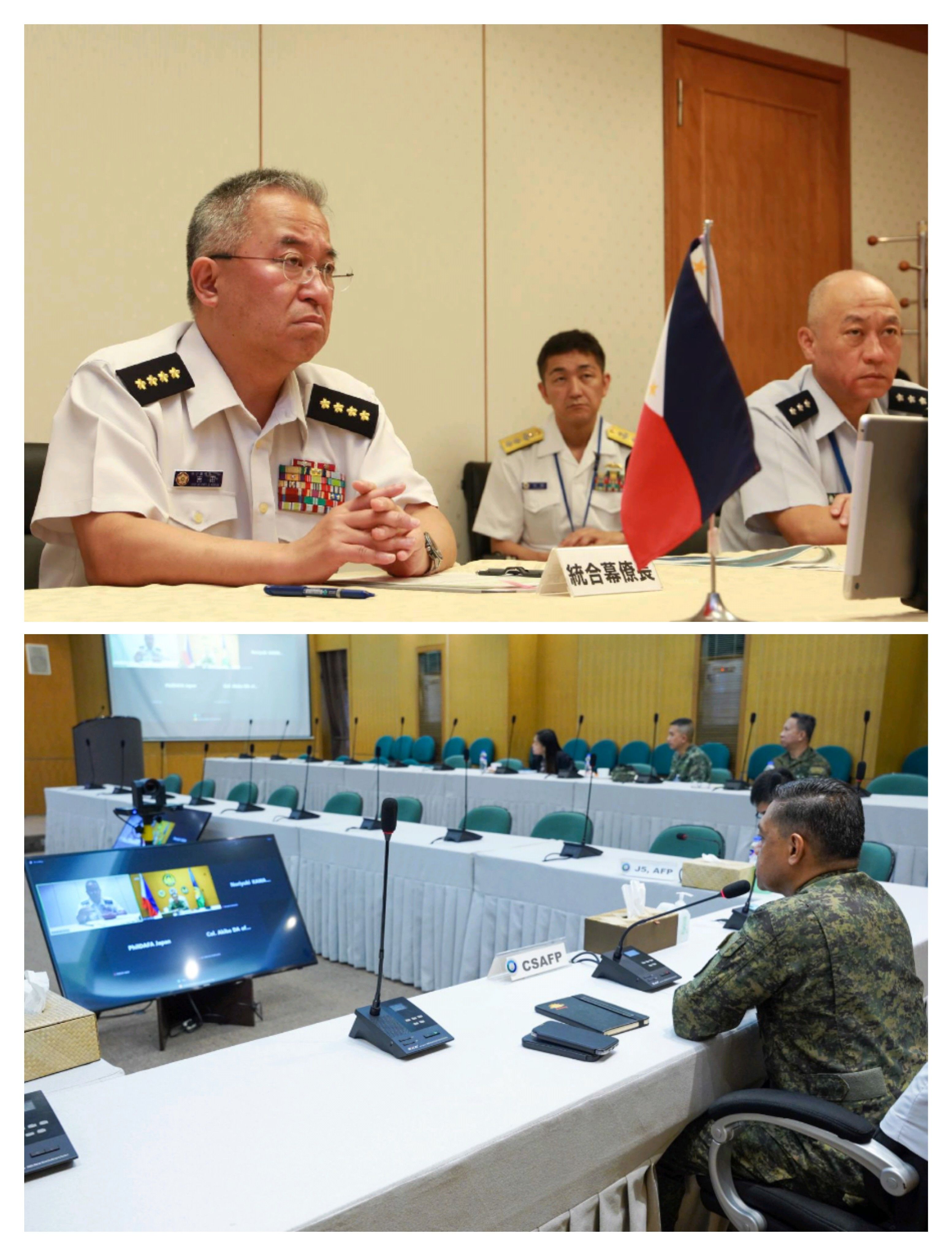Japan military chief voices concern on China's aggression in West Philippine Sea

The military chief of Japan has added to the long list of voices expressing concern on China’s aggressive actions in the West Philippine Sea (WPS).
General Yoshihide Yoshida, Chief of Joint Staff of the Japan Self-Defense Forces (JSDF), met General Romeo Brawner Jr., Chief of Staff of the Armed Forces of the Philippines (AFP), via video teleconference on Thursday, June 20, where they discussed the China Coast Guard’s (CCG) seizure and destruction of AFP equipment and vessels during the June 17 resupply mission at the BRP Sierra Madre outpost in Ayungin (Second Thomas) Shoal.
“JSDF always stands on the side of AFP, and JSDF will deepen its cooperation with Philippines and like-minded countries,” Yoshida said.
For his part, Brawner extended his gratitude to the JSDF in its continued support to the AFP and the Philippines.
“We are very thankful for the support that Japan is giving us. Japan was one of the first countries that gave its support condemning the actions of CCG,” the AFP chief said.
The AFP described China’s actions during the resupply mission as “hijacking” as CCG illegally boarded the Philippine boats and confiscated the firearms of the Filipino soldiers.
The AFP also accused the CCG of towing their boats involved in the mission and puncturing them using bladed weapons to render them immobile. The CCG also destroyed communications and navigational equipment onboard the boats, and used teargas and blinding lights against the Filipino troops, according to the AFP.
The CCG, however, insisted that their actions were “professional and restrained” as the AFP’s resupply vessels supposedly intruded into the waters that they claim in the South China Sea.
China claims almost the entire South China Sea, including parts of the WPS, but such were invalidated by an arbitral ruling in 2016 which favored the Philippines’ claims in the disputed waters.
Several countries have called out China over the violent resupply mission including top diplomats from the United States of America, Canada, South Korea, Germany, United Kingdom, Japan, Australia, New Zealand, France, as well as the European Union (EU).
US Navy reaffirms strong partnership with PH Navy
Meanwhile, the United States Navy rallied support for the Philippines and reaffirmed its robust ties with the Philippine Navy (PN) amid “challenging times.”
Vice Adm. Fred Kacher, commander of the US 7th Fleet, paid a courtesy visit to the PN headquarters in Manila on Wednesday, June 19. He was welcomed by PN vice commander Rear Adm. Ceasar Bernard Valencia.
“We are glad we are here during these challenging times. This underscores all the things that our national leaders are saying with respect to our relationship as friends and partners,” Kacher said.
The two military leaders also shared their optimism as the US and the Philippines continue to strengthen their cooperation through further engagements on a strategic and operational level.
Valencia conveyed the PN’s hope for continuing the longstanding naval partnership between Manila and Washington.
“These are indeed challenging times, and during these trying times, it is always good to have a lot of friends. We look forward to what we can do in the next steps ahead, considering the challenges that we are facing,” Valencia said.
‘Stop finger-pointing’
Relatedly, an activist youth group decried the finger-pointing between the Chinese and Philippine governments, calling it as “counter-productive,” amidst escalating incidents of aggressive behavior in disputed areas in the WPS.
Samahan ng Progresibong Kabataan (SPARK) asserted the need for the governments and maritime forces of the two countries to cease provocative measures against each other which endanger the lives of citizens across countries, and instead engage in constructive dialogue to de-escalate tensions.
“Orders from Beijing that put Filipinos at risk of injury or even death should not be tolerated; not least by the governments across the region such as ours, whose interest is in establishing a peaceful consensus on how to operate in these shared waters,” SPARK national coordinator John Lazaro said in a statement.
The youth group stated that any peaceful solution in the West Philippine Sea should involve the withdrawal of the standing order by the Chinese military to engage and capture non-Chinese vessels.
“It is through these kinds of orders that China puts millions in the crosshairs of conflict, such as Filipino fisherfolk and other civilians trying to make a living in the area,” Lazaro stated.
Lazaro renewed SPARK’s call for countries in ASEAN, including the Philippines, and China to return to the negotiating table and engage in talks to establish rules of conduct and guarantee peace and neutrality in the area.
“Rather than goad an inter-imperialist conflict, we must be the first to pursue a genuine independent foreign policy and unite the region for a just and lasting peace,” he said.